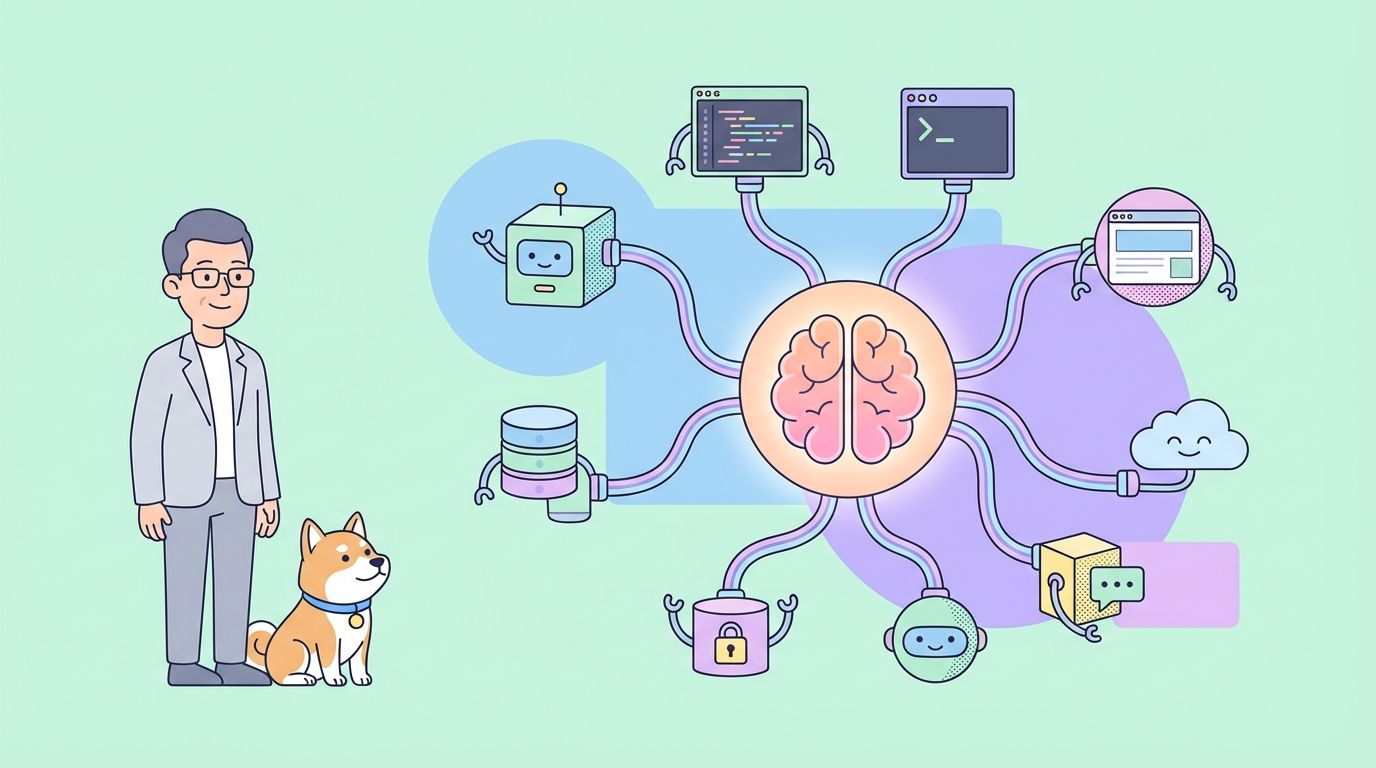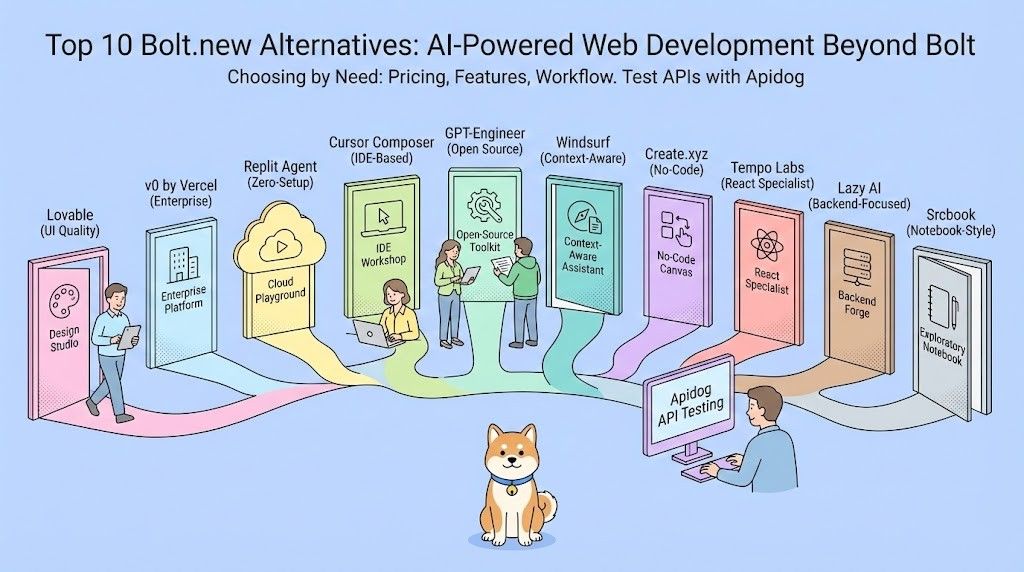In the rapidly evolving landscape of web development, Socket.IO has emerged as a cornerstone technology for implementing real-time, bidirectional communication. While Socket.IO empowers developers to create responsive applications, debugging these real-time connections presents unique challenges that conventional HTTP debugging tools cannot adequately address.
This article examines five powerful Socket.IO debugging tools that will transform your development workflow and troubleshooting capabilities.
1. Apidog
Apidog stands at the forefront of Socket.IO debugging technology, offering an integrated approach that extends beyond simple testing to encompass the entire API development lifecycle.

The platform's Socket.IO testing capabilities begin with an intuitive connection interface. Developers can establish Socket.IO connections by simply entering the server address (supporting both ws:// and wss:// protocols) and clicking "Connect".
Apidog excels in event management, allowing developers to:
- Listen to multiple events simultaneously with real-time updates
- Send diverse message types including JSON, text, and binary formats
- Implement multiple arguments for complex event testing scenarios
- Utilize ACK callbacks to verify server-side processing
For teams managing complex development environments, Apidog's variable support transforms the testing process. Developers can incorporate environment variables into connection arguments, enabling seamless switching between development, staging, and production environments.

The collaborative aspects of Apidog further distinguish it from alternative Socket.IO testing tools. After debugging, developers can save Socket.IO endpoints to their project directory tree, making them accessible to team members. This capability facilitates knowledge sharing and standardization across development teams.
Documentation generation represents another significant advantage of Apidog's approach to Socket.IO testing. The platform automatically generates comprehensive endpoint documentation that can be shared via URL, ensuring all team members have access to accurate, up-to-date information about Socket.IO implementations.


2. WebSocket King
WebSocket King offers a streamlined approach to Socket.IO debugging, focusing on accessibility and immediate utility. This browser-based tool provides a clean, intuitive interface that makes it particularly suitable for quick verification tasks.

The tool's primary strength lies in its minimal setup requirements and immediate availability. Developers can access WebSocket King through any browser, input their Socket.IO server address, and begin testing without installation or configuration steps.
WebSocket King supports essential Socket.IO debugging functions:
- Real-time connection establishment and monitoring
- Custom event name definition and transmission
- Argument customization for event testing
- Formatted message display for improved readability
The message history functionality merits particular attention, as it provides a chronological record of all sent and received messages, including timestamps and content details. This feature facilitates communication flow tracking and helps identify sequence-dependent issues.
Despite certain limitations in team collaboration features and advanced testing capabilities, WebSocket King serves an important role in the Socket.IO debugging ecosystem. Its accessibility and straightforward approach make it an excellent choice for individual developers or situations requiring quick verification.
3. Socket.IO Test Client
The Socket.IO Test Client Chrome extension brings Socket.IO debugging capabilities directly into the developer's primary work environment—the browser. This integration creates a uniquely convenient workflow for frontend developers who frequently alternate between code editing and testing.

As a browser extension, Socket.IO Test Client offers several distinct advantages:
- Immediate availability without application switching
- Native browser environment that accurately reflects production conditions
- Persistent access across development sessions
- Minimal resource utilization compared to standalone applications
The extension provides a clean interface for connecting to Socket.IO servers, with support for multiple Socket.IO versions. Developers can customize event names and arguments, enabling comprehensive testing directly within the browser environment.
The logging capabilities of Socket.IO Test Client deserve particular recognition. The extension records all sent and received events with precise timestamps, creating a clear timeline view that simplifies the process of tracking communication patterns and identifying potential issues.
For frontend developers, the contextual relevance of testing Socket.IO within the browser environment represents a significant advantage. The extension accurately reflects the same security constraints, CORS limitations, and connection behaviors that the production application will encounter.
4. Socket.IO Tester
Socket.IO Tester distinguishes itself through exceptional version compatibility and accessibility as a browser-based testing solution. This online tool enables developers to debug and test Socket.IO servers directly in the browser without requiring software installation.

The tool's support for all versions of Socket.IO represents a particularly valuable feature for teams maintaining legacy systems or working across projects with different Socket.IO implementations. This version flexibility eliminates compatibility concerns and allows developers to test against specific Socket.IO versions.
The interface design facilitates comprehensive monitoring of Socket.IO communications, with connection and event controls positioned on the left side and communication logs displayed on the right. This layout provides a complete view of all event interactions, enabling developers to correlate actions with responses efficiently.
For temporary testing needs or restricted environments where software installation is limited, Socket.IO Inspector offers significant advantages:
- No installation requirements – testing begins immediately
- Cross-device compatibility – accessible from any modern browser
- Consistent experience across operating systems
- Immediate availability for quick verification tasks
5. Postman
Postman has evolved beyond its origins as an HTTP request tool to become a versatile API development platform that now includes robust support for WebSocket and Socket.IO testing. For teams already utilizing Postman for API development, this expanded functionality creates opportunities for unified testing workflows.
Postman brings professional-grade capabilities to Socket.IO debugging:
- Comprehensive environment management for testing across different contexts
- Team collaboration features for sharing Socket.IO test configurations
- Request history and collections for organizing related tests
- Authentication handling for secured Socket.IO connections
Postman's environment and variable management capabilities prove particularly valuable for Socket.IO testing across different deployment stages. Developers can define environment-specific variables for server addresses, authentication tokens, and other parameters, then seamlessly switch between these environments during testing.
Selecting the Optimal Socket.IO Debugging Tool
When evaluating these tools for your specific needs, consider the following factors:
| Factor | Apidog | WebSocket King | Socket.IO Test Client | Socket.IO Tester | Postman |
|---|---|---|---|---|---|
| Team collaboration | Excellent | Limited | Limited | Limited | Good |
| Ease of use | Good | Excellent | Excellent | Good | Moderate |
| Advanced features | Excellent | Basic | Moderate | Moderate | Good |
| Installation | Desktop app & Browser-based | Browser-based | Browser extension | Browser-based | Desktop app |
| Documentation | Excellent | Limited | Limited | Moderate | So-so |
For comprehensive development environments with team collaboration needs, Apidog provides the most complete solution. WebSocket King and Socket.IO Test Client excel in scenarios requiring quick verification or individual developer workflows. Socket.IO Tester offers exceptional accessibility and version compatibility, while Postman presents compelling advantages for teams already utilizing the platform for other API testing needs.
For many development teams, the optimal approach involves utilizing multiple tools for different scenarios—perhaps Apidog for comprehensive testing and documentation, combined with a lightweight option like Socket.IO Test Client for quick verification tasks.
As real-time features become increasingly central to modern web applications, investing in appropriate Socket.IO debugging tools represents a strategic decision that can significantly enhance development efficiency and improve the overall quality of your real-time applications.



